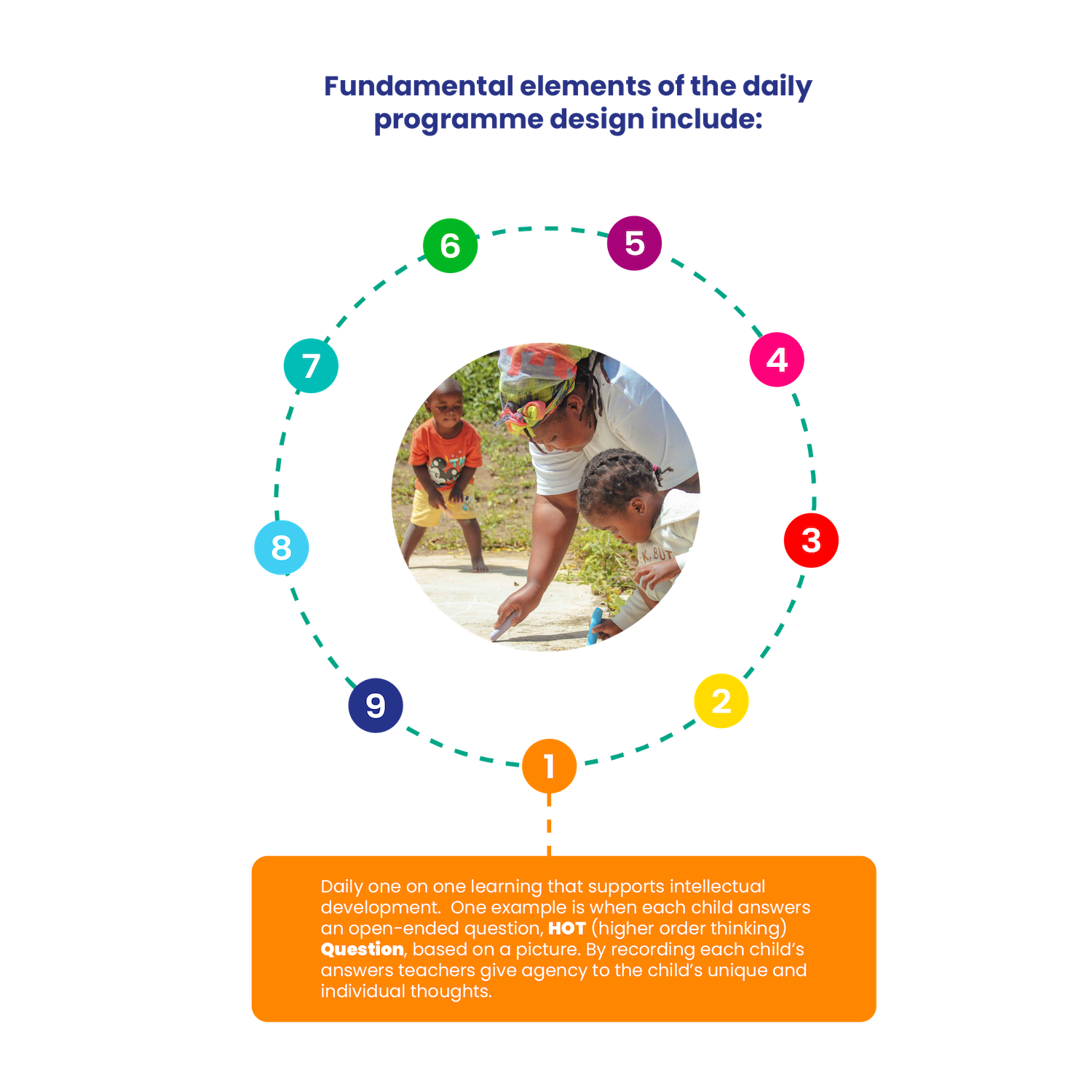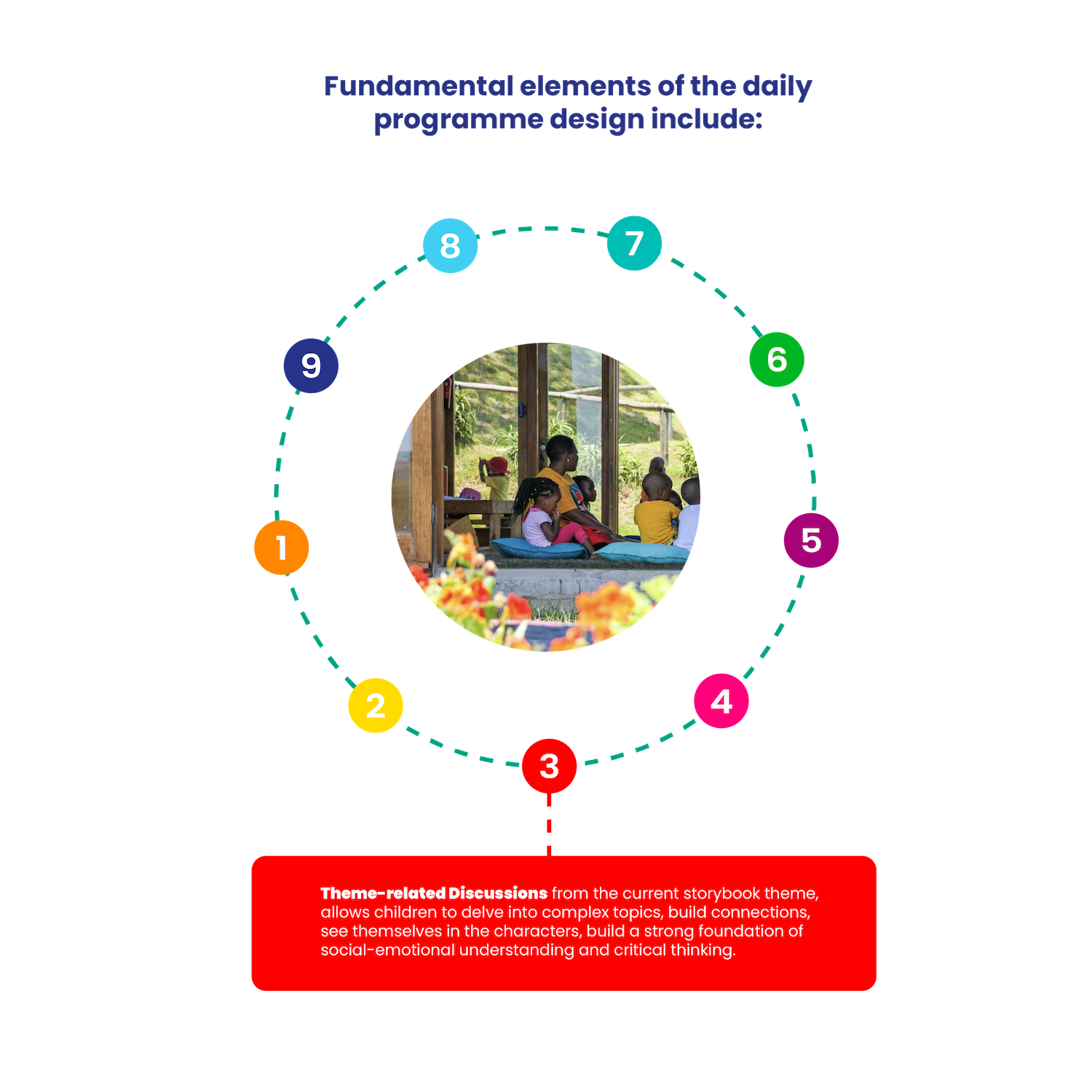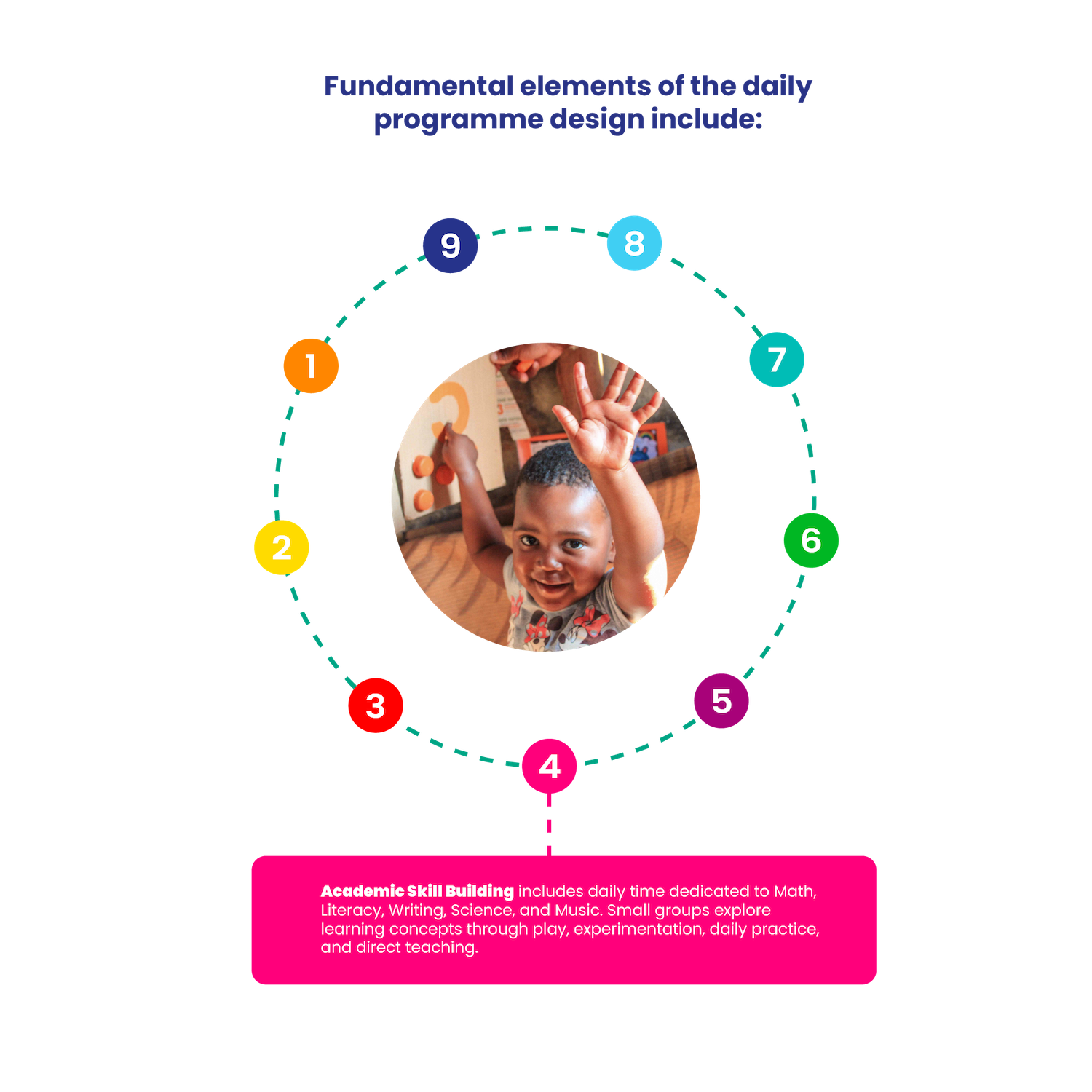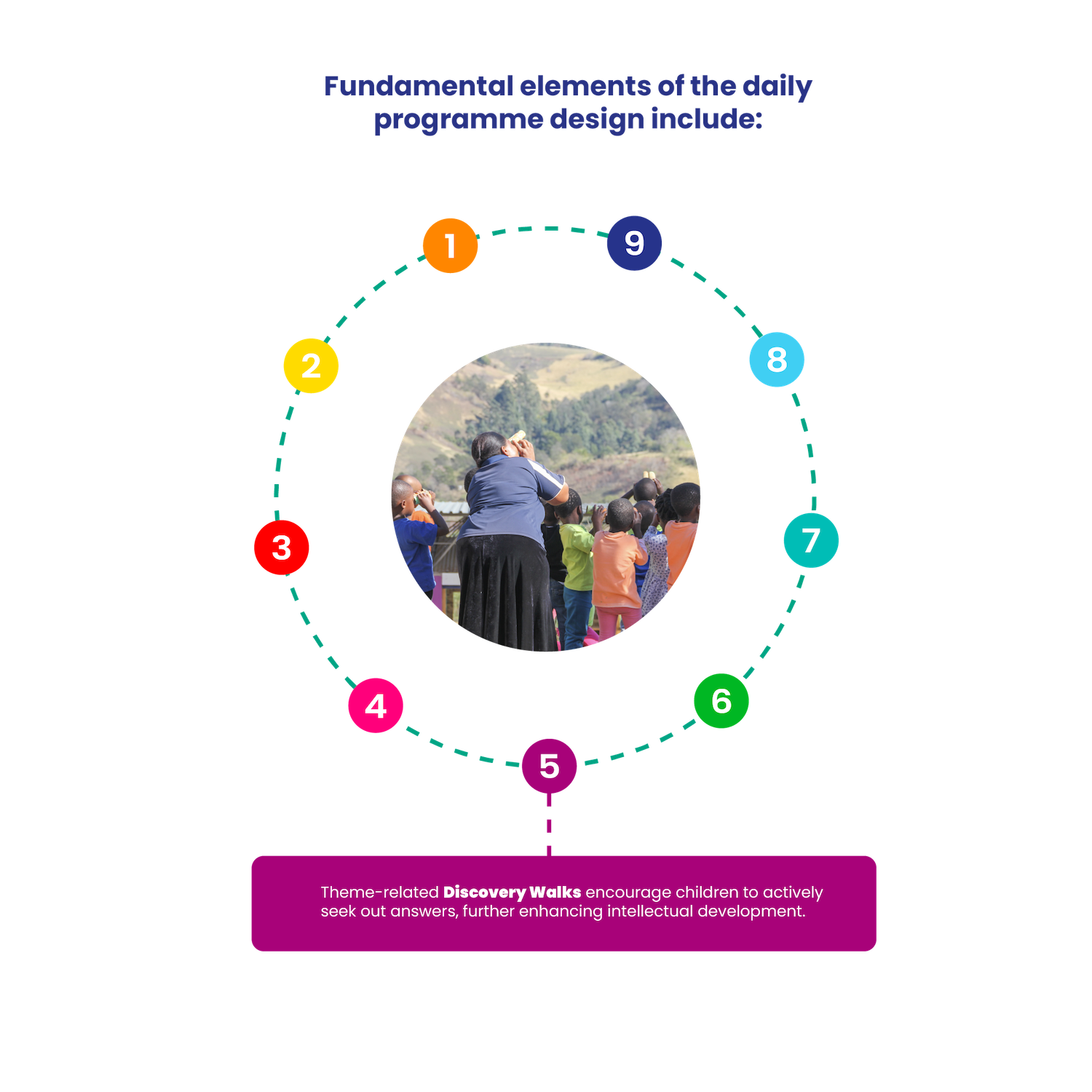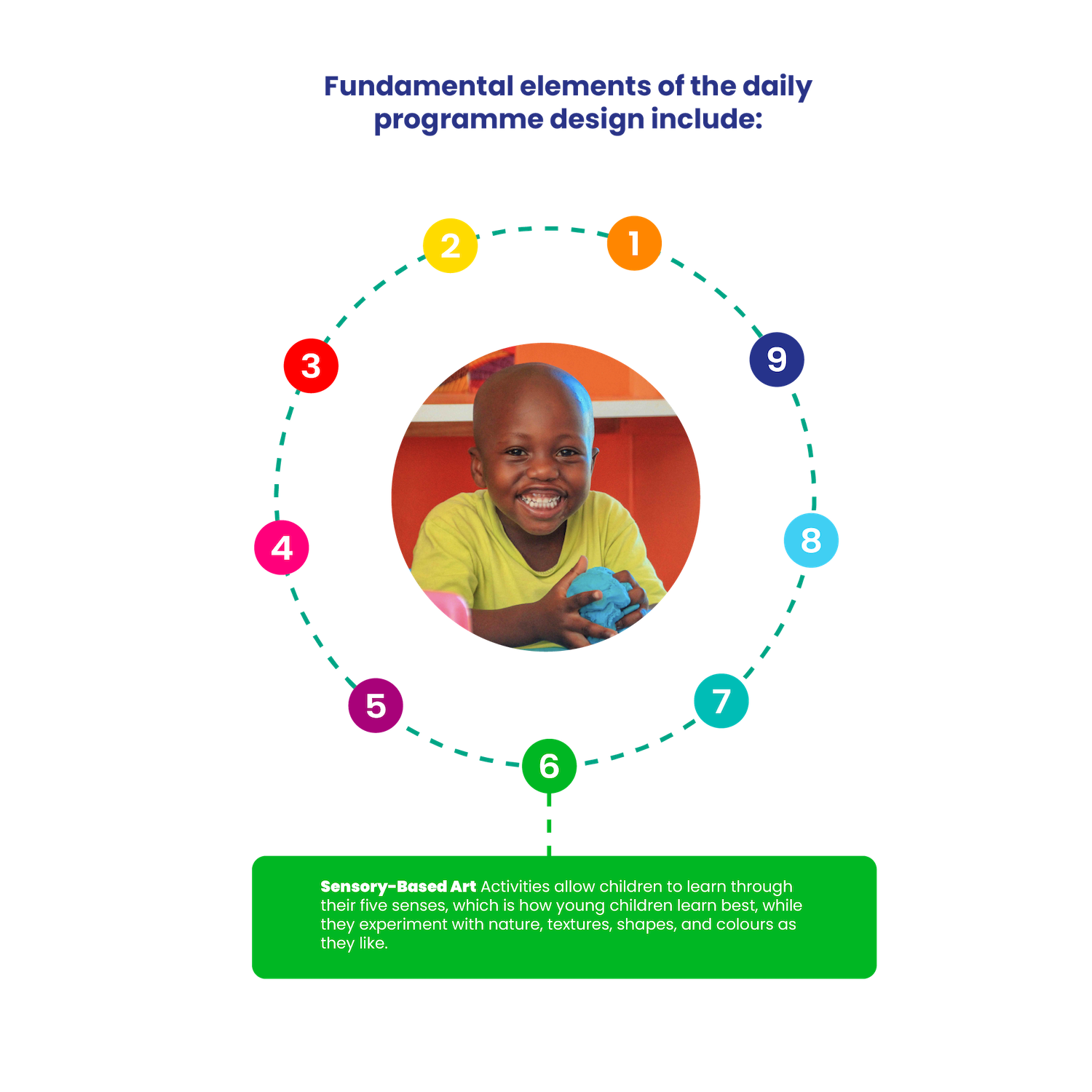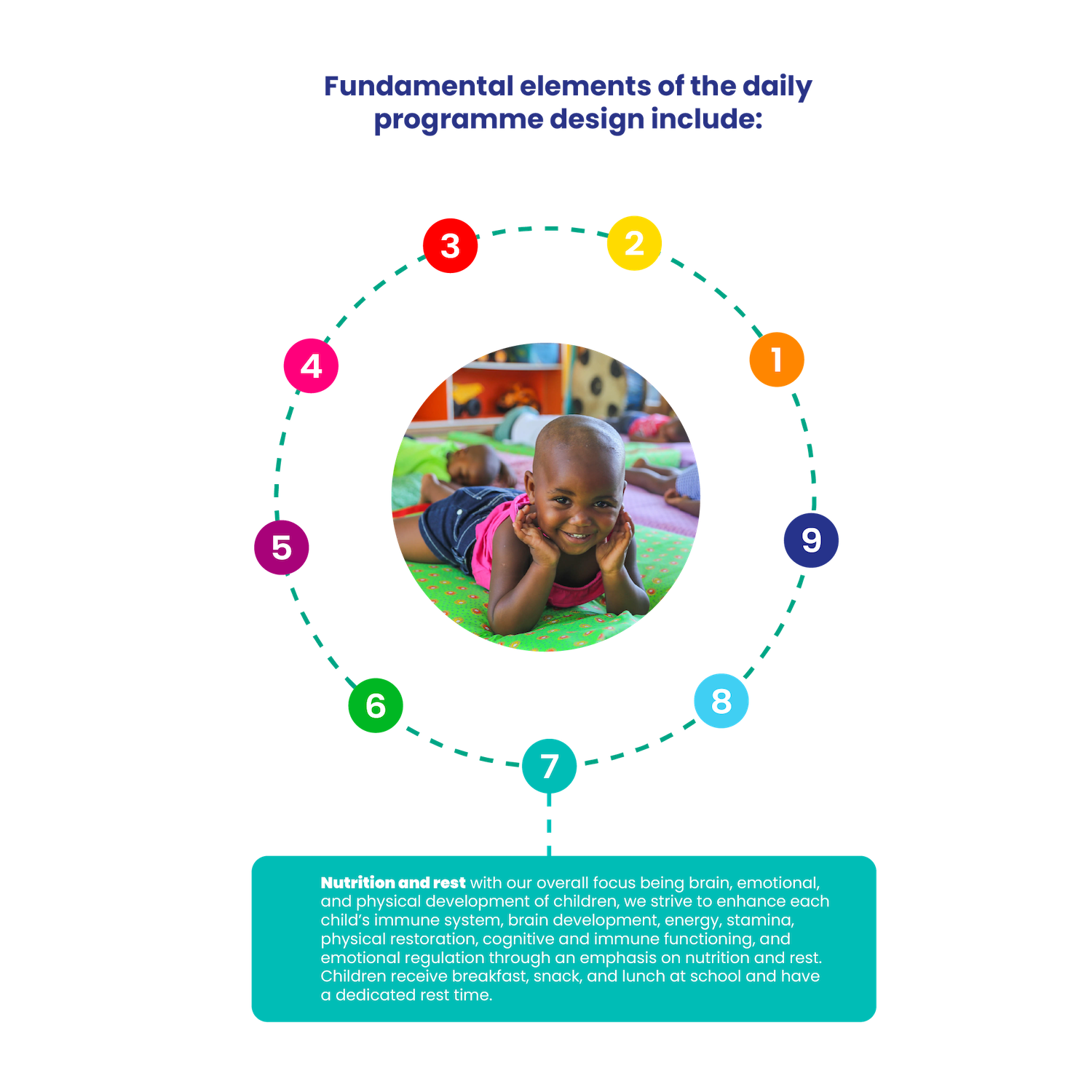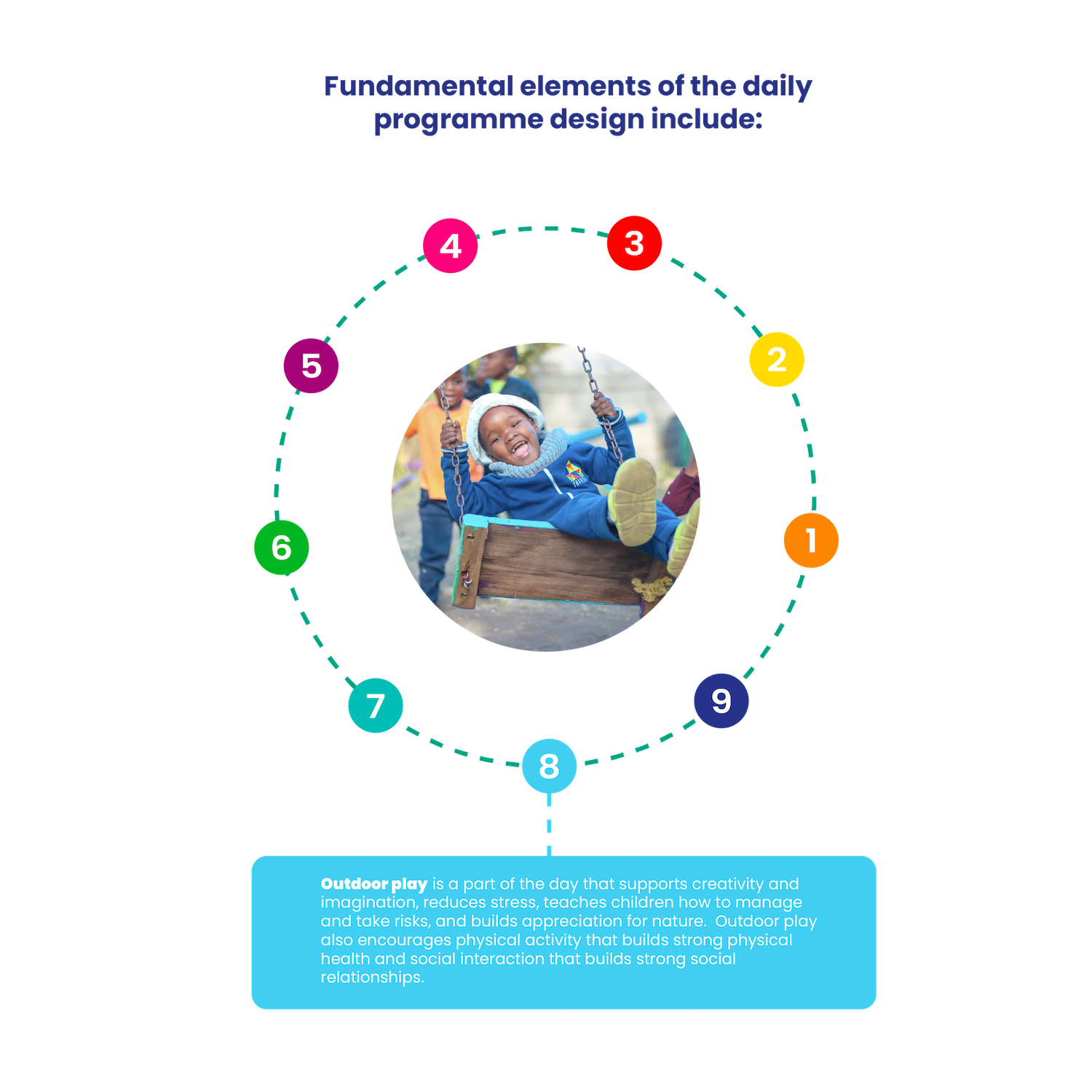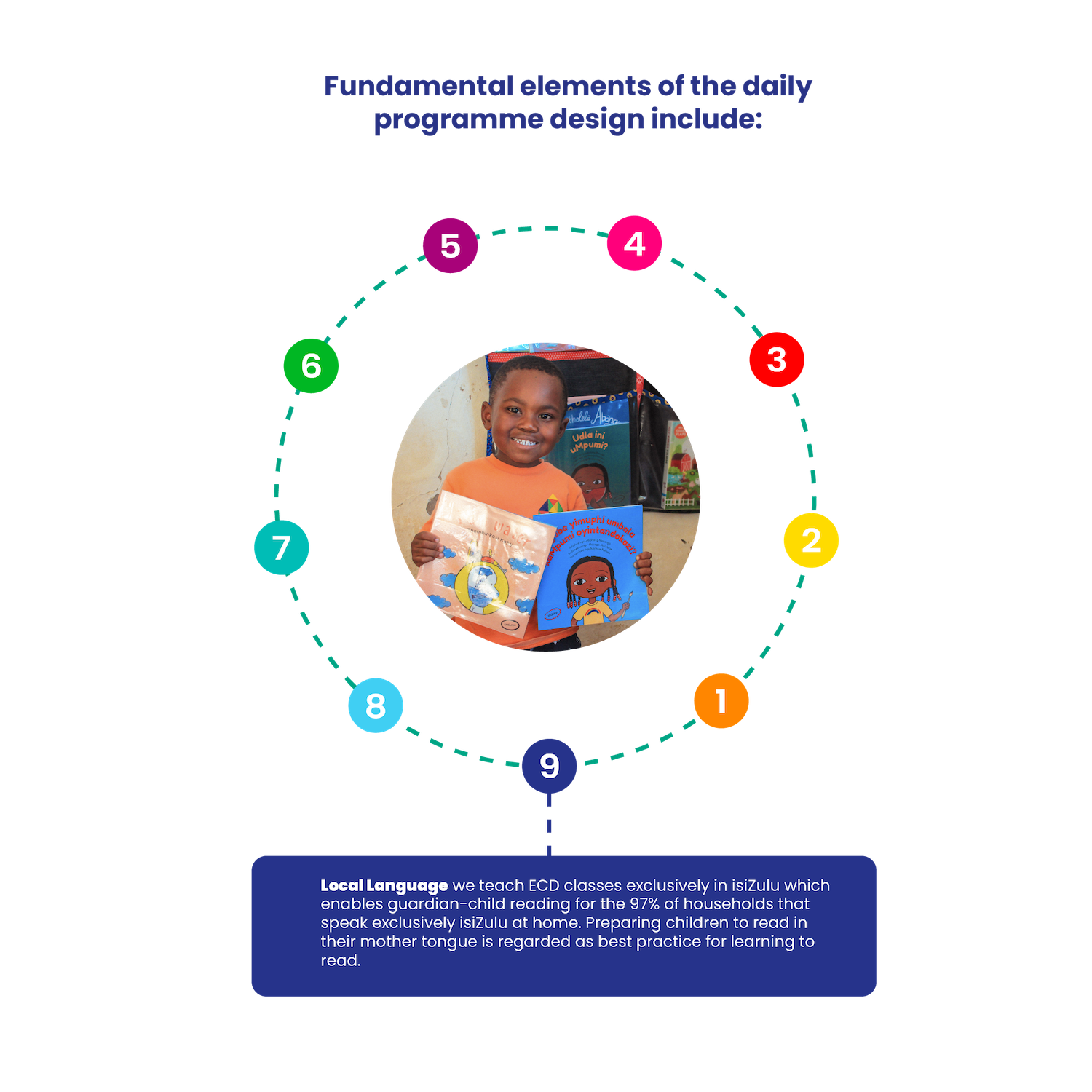Early Childhood Development
90% of a child’s brain develops before the age of five. Our Early Childhood Development Initiative serves as the critical first step in shaping a child’s lifelong learning journey .
OUR APPROACH
Each week, the activities for each day are planned around a carefully selected children’s story. Many of the books deal with emotions and relationships and it is a joy to watch well prepared, responsive practitioners modelling empathy, self-regulation and a love of reading in a playful, active learning space. Vital skills, including numeracy and literacy, are cleverly woven into the day, while the children develop an appreciation for nature and a healthy lifestyle during the daily discovery walk in spectacular settings. This is the kind early learning all of our children deserve!”
Dr. Mary James
Reaching all children , even in the most remote communities through a mixed-model approach .
Baby Programme
Through promotion of playful relationships between guardians and babies, the Baby Programme focuses on achieving developmental milestones in social emotional, physical health, and language and thinking skills.
Imbewu Centre-Based ECD
Satelite ECD Centres
Fun Foundations Household-Based ECDs
Fun Foundations offers early learning opportunities for children living in remote communities who would otherwise not have access to Early Learning. Currently serving 88 children.
Nationally, only 46% of children in ECD Programmes are on track to start Primary School.
VS
We begin with babies
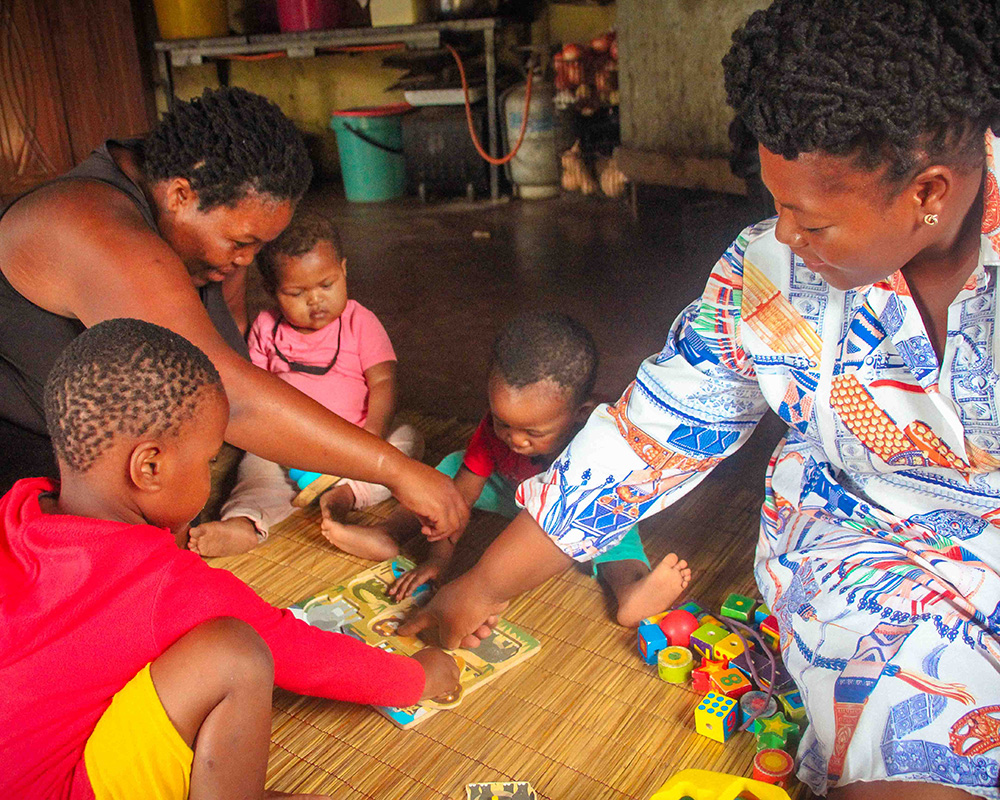
The Baby Programme has reached over 188 babies since its inception in 2021
To further strengthen resilience, Baby Programme guardians participate in monthly Thanda-led playgroups where they discuss child development side-by-side with their neighbours.
Quarterly neighbourhood-wide learning circles on topics such as nutrition, the role of play, and early literacy extend these concepts to everyone living in the area, strengthening community bonds as everyone grows in knowledge and confidence together.
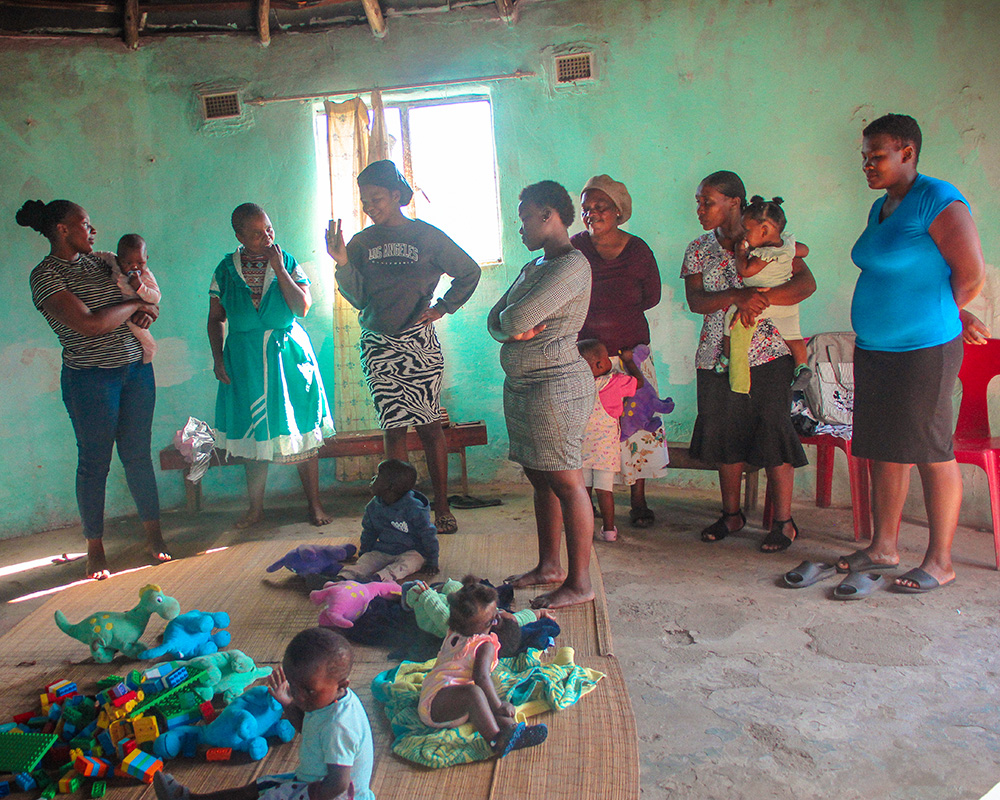
Guardians involved who believe children start learning from birth (Thanda 2024) –
14%
Baseline
100%
Final
ECD Whole-child curriculum
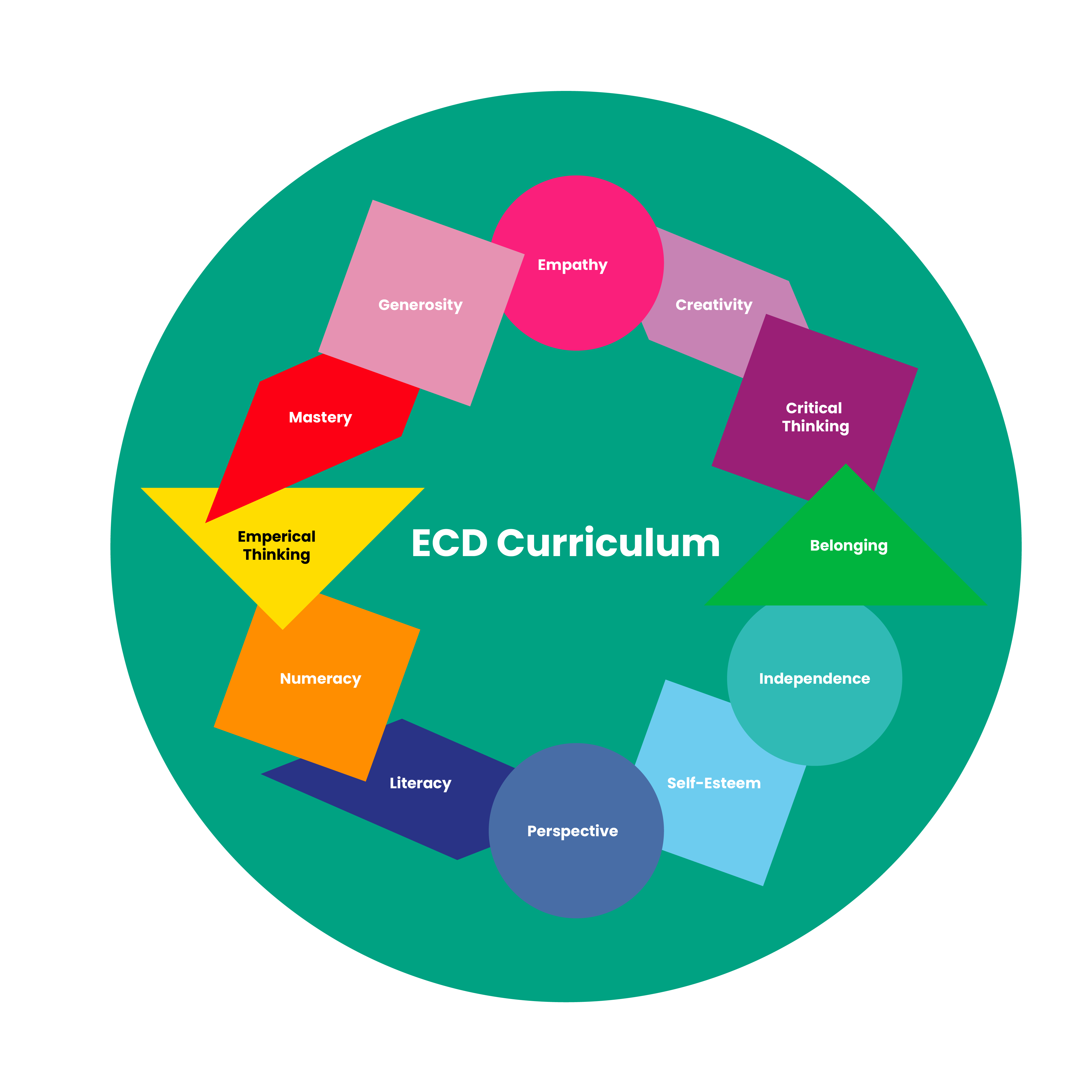
We give children time and support to investigate their world, ask questions about what they are seeing, think about why things are happening, and walk side by side with them as they refine their thinking and understanding of the world .
Reflections from experts in the field
Dr. Shelley O’Carroll
Dr. Elizabeth Dowling
The magic of books
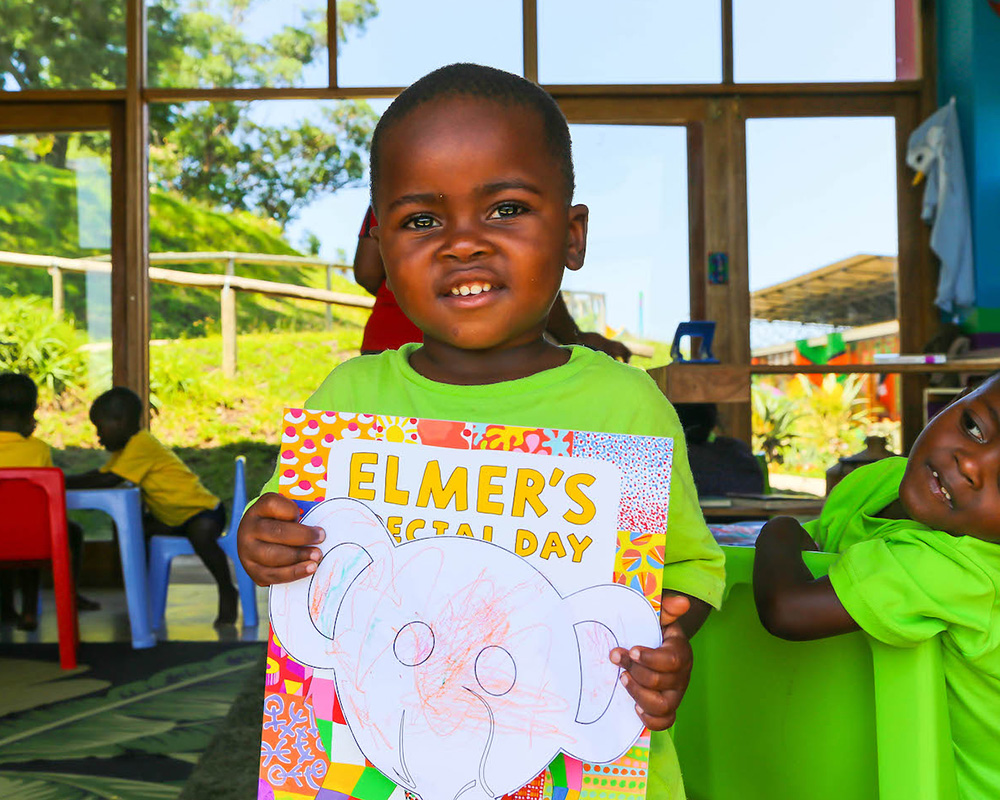
Storybook themes provide a springboard to jump into experiential learning that enables children to explore related concepts, big and small.
Storybook-related discussions delve into deep social-emotional concepts like diversity and tolerance. Storybook-inspired discovery walks and experiments encourage exploration, enquiry, curiosity and discovery – the cornerstones for growing into a lifelong learner!
Reinforced through quality teaching methodologies, books enable early literacy skills such as phonological awareness, letter recognition, and rhyming.
They immerse children in make-believe worlds, helping them extend their imaginations and encouraging empathy through journeying with the storybook characters.
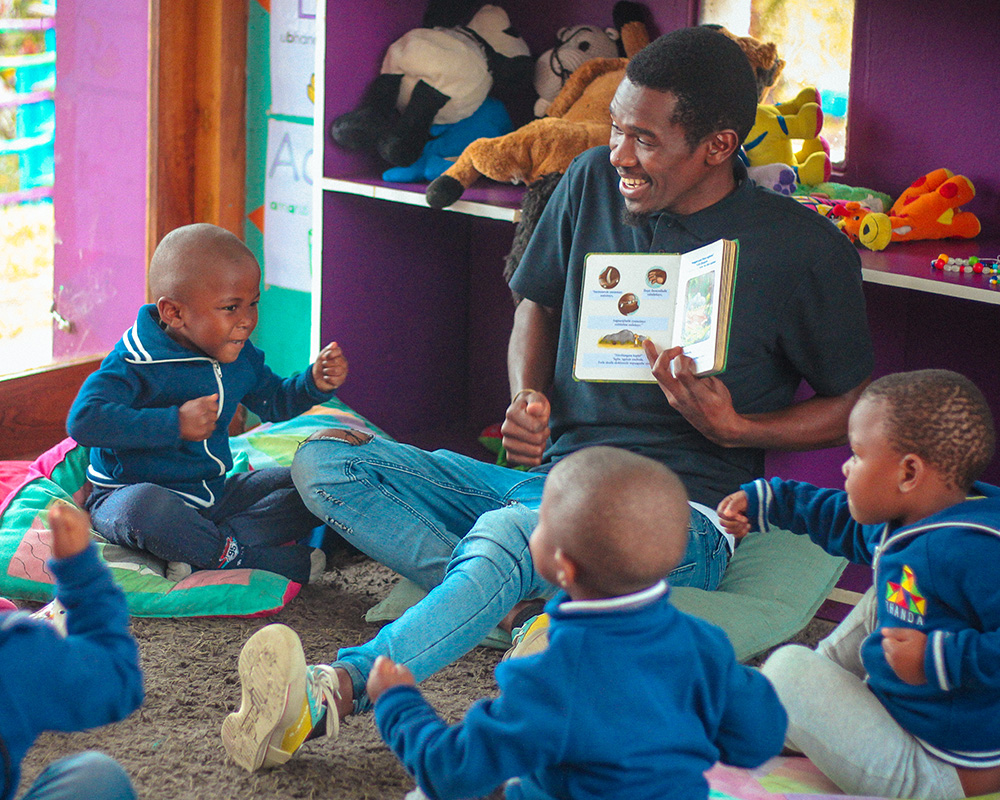
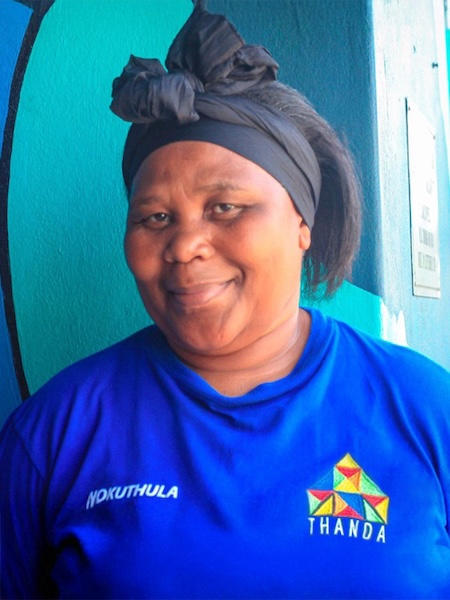
Nokuthula Msimango
“The curriculum is so interactive and fun, everyone gets really excited about the storybook themes! The children love connecting with the characters and exploring discussion topics and activities like discovery walks and art projects linked to the storybook theme.”
ECD Methodology
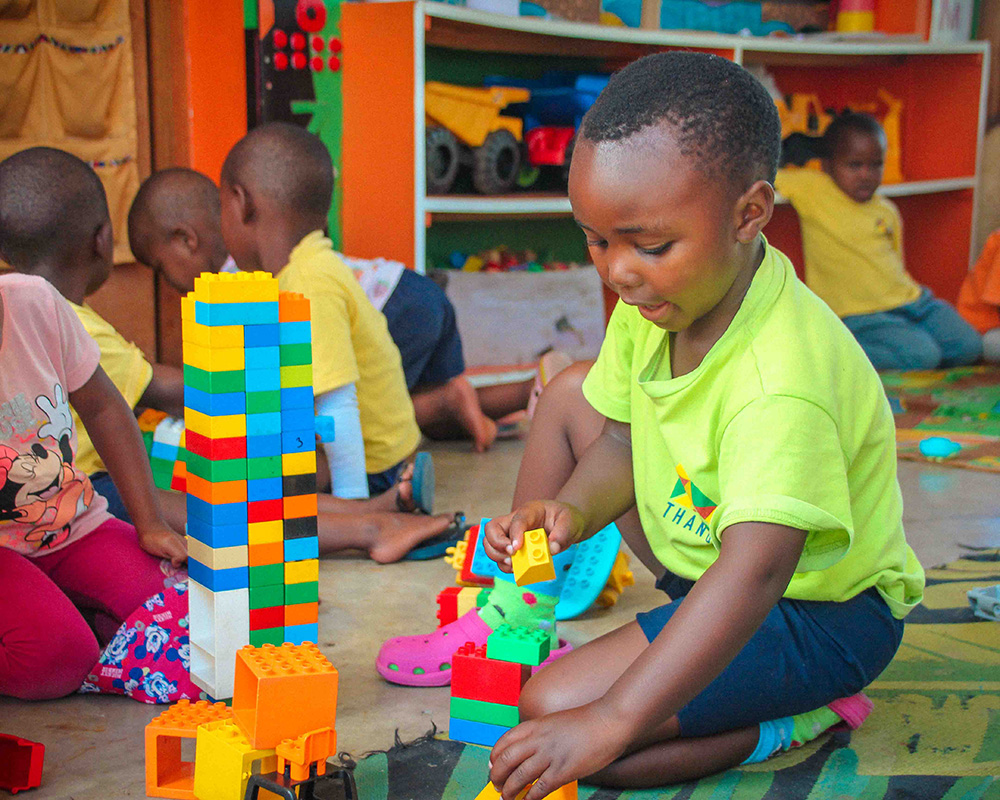
Teacher training model
Our teacher training model is unique. We hire our facilitators from within our community to ensure that they understand the contextual challenges of the local children.
Our model ensures a high quality of instruction across classes with daily training as well as team teaching which allows teachers to learn from each other and mentor the newer/more inexperienced teachers.

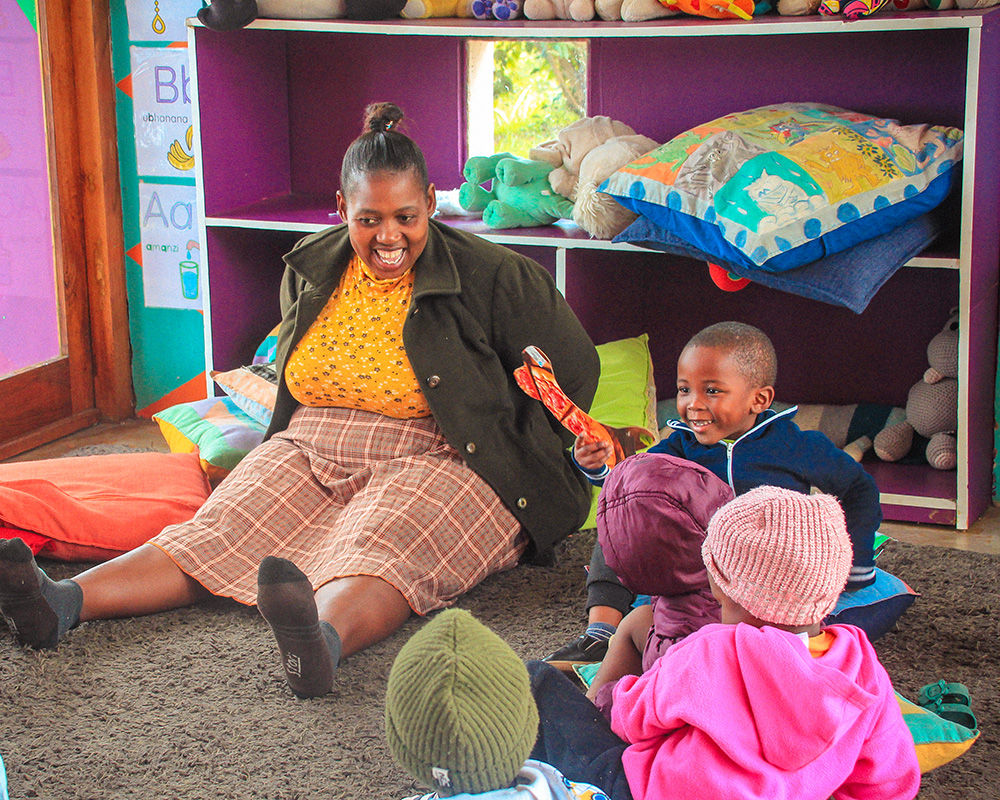
Finally, and perhaps most importantly, we have developed a minute-by-minute curriculum to guide the flow of every aspect of the day and help ensure that every teacher, new and old, feels comfortable and confident in taking their class through every aspect of our curriculum.
The minute-by-minute instructions not only outline what to do but also include the theory and learning outcomes of each and every activity, helping the teachers to build their understanding and capacity while carrying out their roles at the same time.
Children in our ECD programmes achieve age-appropriate goals in the following areas, as outlined in the South African National Curriculum Framework:
Social-Emotional
Development
Cognitive
Development
Language
& Literacy
Numeracy
Creativity
Physical
Development
Knowledge
& Skills
Belonging
What is the impact?

Enabling a home learning environment

Introducing a love of reading early on is important because children who master early reading skills experience an “upward spiral of causality”. This means that, when children find reading easy, they read more, and when they spend more time reading, their skills improve further.
Children in our Early Learning Programmes receive books to keep at home forever, enabling the household to become a home learning environment too. To date, Thanda has distributed 25,449 Book Dash Books to households.
We teach guardians how to read with their children and we make new books available weekly through our mobile library.
Since 2012, children have borrowed 78,658 books!

Sustainable fuel for learning
Our Feeding Scheme provides a breakfast of fortified porridge to all of our Early Childhood Development participants and a warm hearty lunch of rice, vegetables and protein to all children across our programmes (with the added benefit of having the vegetables organically grown by farmers in our Nisela Farming Programme)
Involving guardians in their child’s learning & development
Including children of all abilities

In 2023 all of our ECD Inclusion children were able to transition to a schooling option.
Provides children who have learning and developmental challenges with the opportunity to learn in the same environment as their peers, helping them feel a sense of belonging amongst their peers and community. At the same time, it encourages their classmates to accept, encourage, and include their friends who have challenges, just as they would any other child.
In- classroom support as well as occupational and/or physical therapy, and specialised learning plans for each child.
Building resilience in each participating household through acceptance and navigating complex processes such as accompaniment on visits to clinics and providing referrals to government resources.
